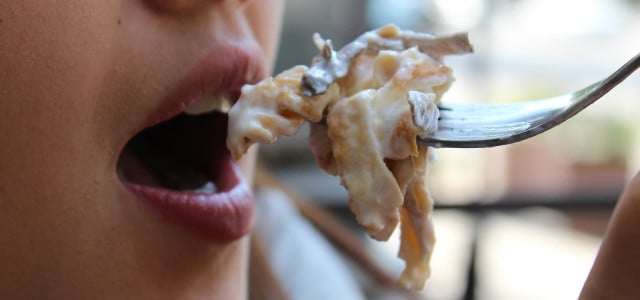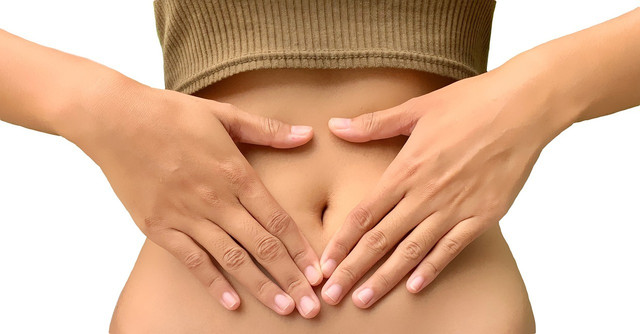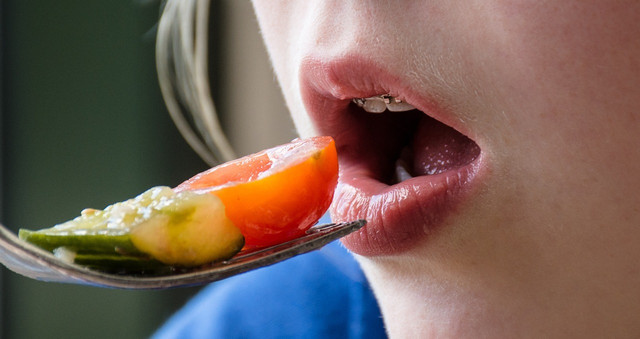
Chewing properly is more important than you might think. We explain to you what you should pay attention to and the advantages of extensive chewing.
When chewing, we break up our food, saliva is added and the chyme can then be swallowed and digested more easily. In addition to the teeth and chewing muscles, the tongue, cheeks, palate and floor of the mouth are also involved. The chewing movements are controlled from the brainstem.
Perhaps your parents often told you when you were a child that you should always chew well – extensively and in peace. But why actually? We’ll explain what’s behind it and how to chew properly.
Why is proper chewing important?
You’ve probably heard the saying “well chewed is half digested”. And that’s actually quite true, because chewing is important for the preparation and the onset of digestion. Breaking down food creates more surface area for the enzymes in our saliva to work on. Thorough chewing also ensures that you can swallow your food safely.
What are the benefits of chewing properly?

(Photo: CC0 / Pixabay / Alicia_Harper)
Proper, thorough chewing also has other benefits:
-
Improve digestion: Digestion is one of the most energy-consuming processes in your body. When you chew your food thoroughly, you help your digestive system break it down more easily. In addition, when chewing, enzymes are released that stimulate digestion.
-
Nutrient absorption: In addition, your body can absorb the nutrients better from thoroughly chewed food.
-
Reduce Bacterial Growth: When you chew your food well, you reduce the risk of bacteria spreading through your digestive tract. Large clumps of food that aren’t broken up properly can increase bacterial growth, which in turn can lead to problems like bloating or constipation.
-
Feeling of satiety: Prolonged, thorough chewing can increase the feeling of satiety. If you chew more often, you will take more time to eat and realize when you are full.
-
Dental and oral health: with correct chewing you can support your dental and oral health and, for example, prevent periodontal disease.
How do you chew correctly?

(Photo: CC0 / Pixabay / Anemone123)
We have collected tips for correct chewing for you:
-
Take your time, try to eat mindfully and not rush.
- Concentrate on eating and chewing and ideally don’t let yourself be distracted while doing so. For example, try to focus on the taste and texture of the food.
- Take small bites and don’t overload your spoon or fork.
- Chew thoroughly. On average, experts recommend chewing each bite 32 times. Some foods need more, some less. When the food has lost its texture, you can swallow it.
- Your mouth should be closed, your tongue should move the food from side to side, and your jaw should rotate slightly.
Read more on Techzle.com:
- Mindfulness training – what mindfulness is and how to practice it
- Eating Fast: Is It Really Unhealthy?
- Warm Meal: How Often Should You Eat Warm?